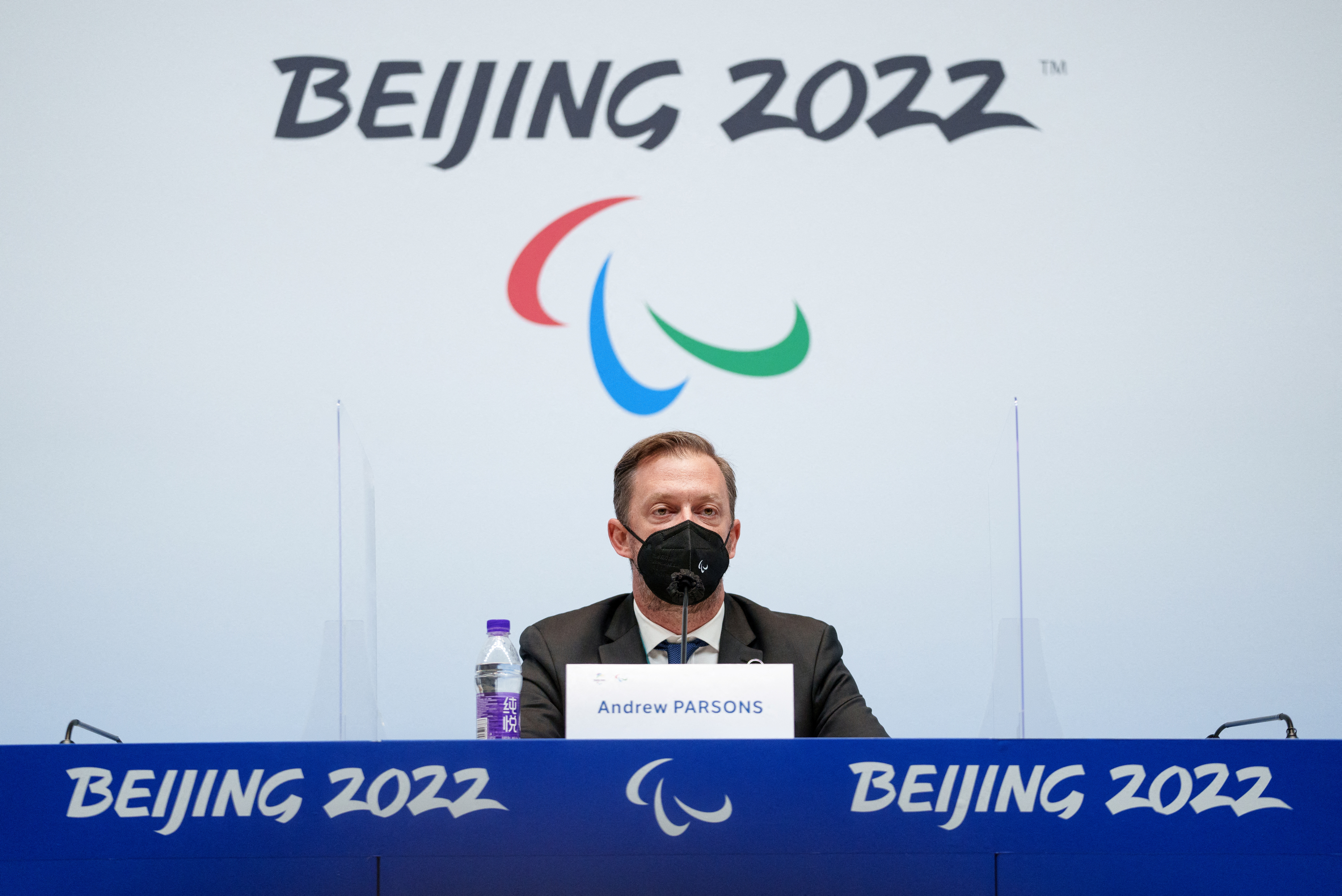
FILE PHOTO: Beijing 2022 Winter Paralympic Games – International Paralympic Committee Press Conference – Main Media Centre, Beijing, China – March 2, 2022. IPC President Andrew Parsons during a press conference ahead of the Beijing 2022 Winter Paralympic Games, following the IPC Governing Board decision in regards to Russian and Belarusian athletes competing during the Ukraine Crisis. Thomas Lovelock/OIS/Handout via REUTERS
BEIJING—Russian and Belarusian athletes were barred from the Winter Paralympics in Beijing on the eve of the Games following threats of boycotts by other teams over Russia’s invasion of Ukraine, the International Paralympic Committee (IPC) said.
Belarus has been a key staging area for the invasion, which was launched a week ago.
Thursday’s decision comes a day after the IPC gave athletes from the two countries the green light to participate in the March 4-13 Games as neutrals, saying the “athletes were not the aggressors.”
But that led to an outcry and threats from other countries’ National Paralympic Committees (NPC) to boycott the Games, IPC President Andrew Parsons told a news conference in Beijing.
“They told us that if we do not reconsider our decision, it is now likely to have grave consequences for the Winter Games,” Parsons said.
“Multiple NPCs, some of which have been contacted by their governments, teams and athletes, are threatening not to compete.”
Ukraine’s paralympic committee welcomed the decision and thanked the sporting community for rallying around them.
“A fair decision, a decision against a country that started this war,” committee president Valeriy Sushkevych told a news conference.
A 71-member Russian contingent and 12-member team from Belarus are in Beijing.
“Now Russia must leave the Games as soon as possible … we would also like to thank everyone for their support. I have received so many messages in the last few days … it’s time to stop this terrible war,” Sushkevych said.
Officials from the two banned teams were not immediately available for comment.
Parsons said it was clear the situation put his organization in a “unique and impossible position” so close to the start of the Games, adding that an overwhelming number of members had been in touch and been forthright in their objections to Russia and Belarus taking part.
Parsons said the Russian and Belarusian athletes were victims of the actions of their governments.
“Athlete welfare will always be a priority for us,” he said.
“If Russian and Belarusian athletes stayed in Beijing, nations were likely to withdraw, and a viable Games would not have been possible.
“The atmosphere in the Games village is not pleasant. The situation there is escalating and has now become untenable … The Games are not only about gold, silver and bronze, but also about sending a strong message of inclusion.”
Parsons said the IPC was likely to face legal consequences but was confident that the right decision had been made.
The IPC said earlier in a statement that following a specially convened meeting, its Governing Board has decided not to allow athletes from Russia and Belarus to take part.
The ban got support of the Polish Paralympic Committee, which said it would have been unimaginable for athletes from Ukraine, Russia and Belarus to compete in the same place.
“The decision taken today was in our opinion the only possible one. Russia, with the support of Belarus, has aggressively breached international law and invaded another Paralympic member state and our close neighbor,” the committee said in a statement to Reuters.
“That is why we strongly objected the previous decision of IPC, many nations shared the same opinion and expressed it in their petitions to IPC. We are glad IPC changed their mind.”